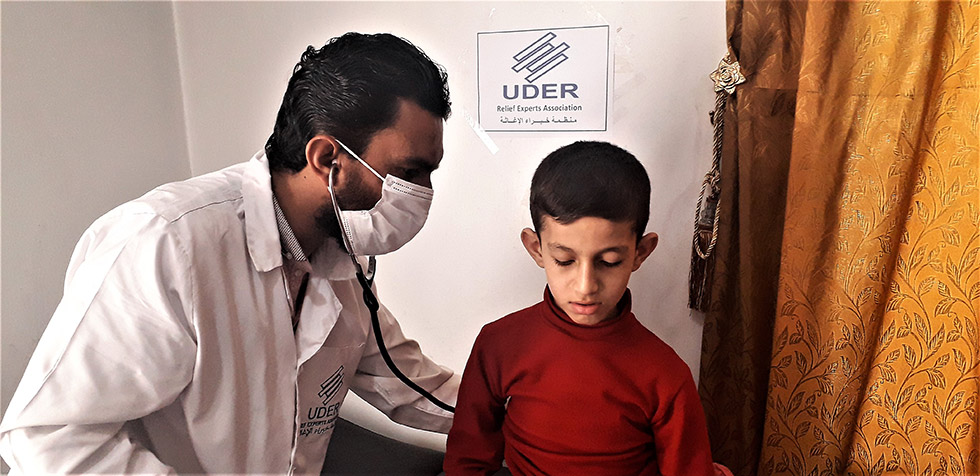
21 August 2022 – WHO, together with the Relief Experts Association UDER as implementing agency, has bolstered the provision of primary health care services in northwest Syria by rendering the facilities in the towns of Sarmada, Tarmanin, Daret Azza and Zarzour fully operational.
Due to the size and scope of the project – which took place between August 2021 and May 2022 – UDER had struck agreements with several other organizations on the ground. Thanks to immense efforts requiring daily coordination, the Mentor Initiative offered leishmaniasis treatment services; Physicians Across Continents delivered malnutrition services; Shafak Organization provided childbirth and nutrition services; the Syrian Immunization Group made various vaccination services available – including for tuberculosis, polio, diphtheria, Ttetanus, pertussis, haemophilus influenzae type B, hepatitis B, measles, German measles, mumps and COVID-19; the Assistance Coordination Unit provided daily nutritional surveillance services; and the Qatar Red Crescent offered psychosocial services.
This multi-partner approach proved highly effective in delivering the best possible health care to the people of northwest Syria.
During the project – supported by the United Nations Office for the Coordination of Humanitarian Affairs (UNOCHA) and its Syrian Cross-border Humanitarian Fund (SCHF) – 174 374 medical consultations were provided through the 4 health facilities (132% of the targeted 131 893), including for 98 064 internally displaced persons in the area. A total of 127 276 patients (equating over 159% of the targeted 80 000) were screened for temperature measurements.
Over 70 health care workers (254% of the 28 originally targeted) were trained on various health topics. UDER also recruited 24 community health workers in connection to the 4 health care centres (10 in Sarmada; 6 in Tarmanin; 2 in Daret Azza; and 6 in Zarzour) to actively screen communities and refer individuals with health conditions to the facilities. The total number of people screened and referred to health services reached 4892 (230% of the planned target: 2125).
By the end of the project, community health workers had conducted 17 403 household sessions (103% of the targeted 16 896), which comprised health education and awareness, including on the preventative measures against COVID-19.
For more information, please contact:
Grattan Lynch
Communications Officer
E-mail:


